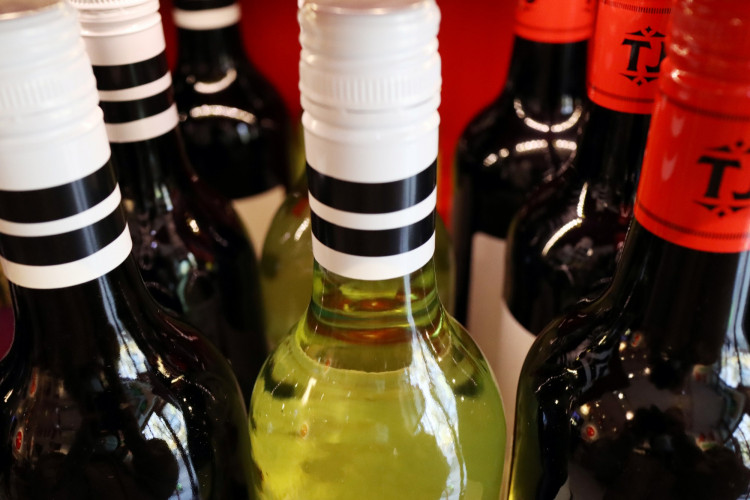France's Champagne industry is in uproar after Russia approved a new law requiring Champagne producers to call their bubbly "sparkling wine" but allowing domestic producers to continue selling "shampanskoye."
The law, signed by Russian President Vladimir Putin, forces all foreign sparkling wine producers to designate their product as such on the back of the bottle - but not on the front - while Russian "shampanskoye" producers may continue to use that term alone.
Around 120 countries follow France's "appellation d'origine" rules, which limit the "Champagne" title to sparkling wines manufactured in the Champagne region under specific conditions.
The French Champagne industry group called on its members to halt all shipments to Russia for the time being.
"The Champagne Committee deplores the fact that this legislation does not ensure that Russian consumers have clear and transparent information about the origins and characteristics of wine," Maxime Toubart and Jean-Marie Barillere, the group's co-presidents, said in a statement.
Since the Soviet times, Champagne - "shampanskoye" in Russian - has been used as a generic term for a wide range of sparkling wines, some of which sell for as little as 150 rubles ($2) a bottle, contradicting Champagne's premium image.
Champagne is one of the most protected products in the drinks industry. The name is highly protected and legally defended, which means that to be called Champagne, it must come from the region of France with that name and be produced in accordance with certain regulations.
Even the head of one of Russia's largest wineries believes the law goes too far.
"For me, there is no doubt that real Champagne comes from the Champagne region in France," Pavel Titov, president of Abrau-Dyurso, said. "It is very important to protect Russian wines in our market and provide them with comprehensive patronage. But the legislative measures taken must be reasonable and not contradict common sense."






